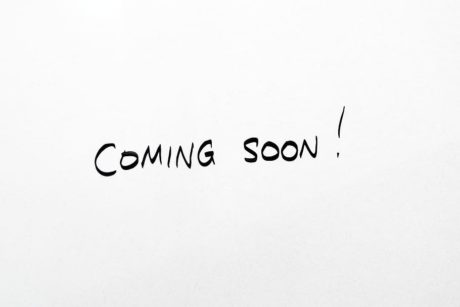Giving yourself Evil Eye
Question:
Is it possible to give Nazar (evil eye) to one’s self? If so how should one go about making sure that this does not occur?
Answer:
In the Name of Allah, the Most Gracious, the Most Merciful.
As-salāmu’ alaykum wa-raḥmatullāhi wa-barakātuh.
Regarding your question about the possibility of giving evil eye to one’s self and how to safeguard it from happening. Firstly, we need to understand what the scholars of Islam have mentioned:
عن أنس بن مالك، رضي الله عنه أن رسول الله صلى الله عليه وسلم قال: ” من رأى شيئا فأعجبه، فقال: ما شاء الله، لا قوة إلا بالله، لم يضره العين “. يعني: لا يصيبه العين
The Messenger of Allah (ﷺ) Said: Whoever sees something and admires it, so then says Masha Allah la Quwwata illa billah, nothing will harm him. Meaning: the evil eye will not harm him. (ibn Sunni)
Not only does this tell us one of the ways of protection against the evil eye. it shows the sensitivity of the evil eye, just by admiring something excessively can trigger the evil eye to occur so then, it isn’t farfetched to think that if one admires something about himself (excessively) he can trigger a Nazar upon himself.
Another way to protect one’s self from the evil eye is to recite the last two surahs of The Holy Quran (Surah al-Falaq and Surah al-Naas)
وعن أبي سعيد الخدري رضي الله عنه قال : كان رسول الله صلى الله عليه وسلم يتعوذ من الجان، وعين الإنسان، حتى نزلت المعوذتان، فلما نزلتا، أخذ بهما وترك ما سواهما
Abu Saeed Al-Khudri (May Allah be pleased with him) reported: “The Messenger of Allah (ﷺ) used to seek protection against the evil of jinn and the evil eyes till Surat Al-Falaq and Surat An-Naas were revealed. After they were revealed, he took to them for seeking Allah’s protection and left everything besides them.” (Riyad as-Saliheen)
In conclusion we now recognize the severity of the evil eye as well as the sensitivity of it. One should recite Surah al-Falaq and Surah al-Naas regularly as it is one of the best ways to protect one’s self.
<fn>وعن أبي سعيد الخدري رضي الله عنه قال : كان رسول الله صلى الله عليه وسلم يتعوذ من الجان، وعين الإنسان، حتى نزلت المعوذتان، فلما نزلتا، أخذ بهما وترك ما سواهما
Saliheen1/301)-(Riyad as
أَخْبَرَنَا هِلاَلُ بْنُ الْعَلاَءِ، قَالَ حَدَّثَنَا سَعِيدُ بْنُ سُلَيْمَانَ، قَالَ حَدَّثَنَا عَبَّادٌ، عَنِ الْجُرَيْرِيِّ، عَنْ أَبِي نَضْرَةَ، عَنْ أَبِي سَعِيدٍ، قَالَ كَانَ رَسُولُ اللَّهِ صلى الله عليه وسلم يَتَعَوَّذُ مِنْ عَيْنِ الْجَانِّ وَعَيْنِ الإِنْسِ فَلَمَّا نَزَلَتِ الْمُعَوِّذَتَانِ أَخَذَ بِهِمَا وَتَرَكَ مَا سِوَى ذَلِكَ
Kubra 7/200)-(Sunan Nasai al
حَدَّثَنَا هِشَامُ بْنُ يُونُسَ الْكُوفِيُّ، حَدَّثَنَا الْقَاسِمُ بْنُ مَالِكٍ الْمُزَنِيُّ، عَنِ الْجُرَيْرِيِّ، عَنْ أَبِي نَضْرَةَ، عَنْ أَبِي سَعِيدٍ، قَالَ كَانَ رَسُولُ اللَّهِ صلى الله عليه وسلم يَتَعَوَّذُ مِنَ الْجَانِّ وَعَيْنِ الإِنْسَانِ حَتَّى نَزَلَتِ الْمُعَوِّذَتَانِ فَلَمَّا نَزَلَتَا أَخَذَ بِهِمَا وَتَرَكَ مَا سِوَاهُمَا . قَالَ أَبُو عِيسَى وَفِي الْبَابِ عَنْ أَنَسٍ . وَهَذَا حَدِيثٌ حَسَنٌ غَرِيبٌ
(Jami al-Tirmidhi 4/395)
حَدَّثَنَا أَبُو بَكْرِ بْنُ أَبِي شَيْبَةَ، حَدَّثَنَا سَعِيدُ بْنُ سُلَيْمَانَ، عَنْ عَبَّادٍ، عَنِ الْجُرَيْرِيِّ، عَنْ أَبِي نَضْرَةَ، عَنْ أَبِي سَعِيدٍ، قَالَ كَانَ رَسُولُ اللَّهِ ـ صلى الله عليه وسلم ـ يَتَعَوَّذُ مِنْ عَيْنِ الْجَانِّ وَأَعْيُنِ الإِنْسِ فَلَمَّا نَزَلَتِ الْمُعَوِّذَتَانِ أَخَذَهُمَا وَتَرَكَ مَا سِوَى ذَلِكَ
(Sunan Ibn Majah 2/1161)
روينا في كتاب ابن السني، عن أنس بن مالك رضي الله عنه، قال: قال رسول الله صلى الله عليه وسلم: ” ما أنْعَمَ اللَّهُ عَزَّ وَجَلَّ على عَبْدٍ نِعْمَةً في أهْلٍ ومَالٍ وَوَلَدٍ فَقالَ: ما شاءَ اللَّهُ لا قُوَّةَ إِلاَّ باللَّهِ، فَيَرَى فِيها آفَةً دونَ الموت
(Adhkar li Nawawi 1/126)
عن أنس بن مالك، رضي الله عنه أن رسول الله صلى الله عليه وسلم قال: ” من رأى شيئا فأعجبه، فقال: ما شاء الله، لا قوة إلا بالله، لم يضره العين “. يعني: لا يصيبه العين
(Amal al Youm wal Layl 1/181)
</fn>
References:
And Allah Ta’āla Knows Best
Checked and Approved by,
Mufti Yusuf bin Yaqub
Share on facebook
Share on twitter
Share on linkedin
Share on google
Share on email
Our Courses
Sponsor a haafiz
Help support our cause
$


